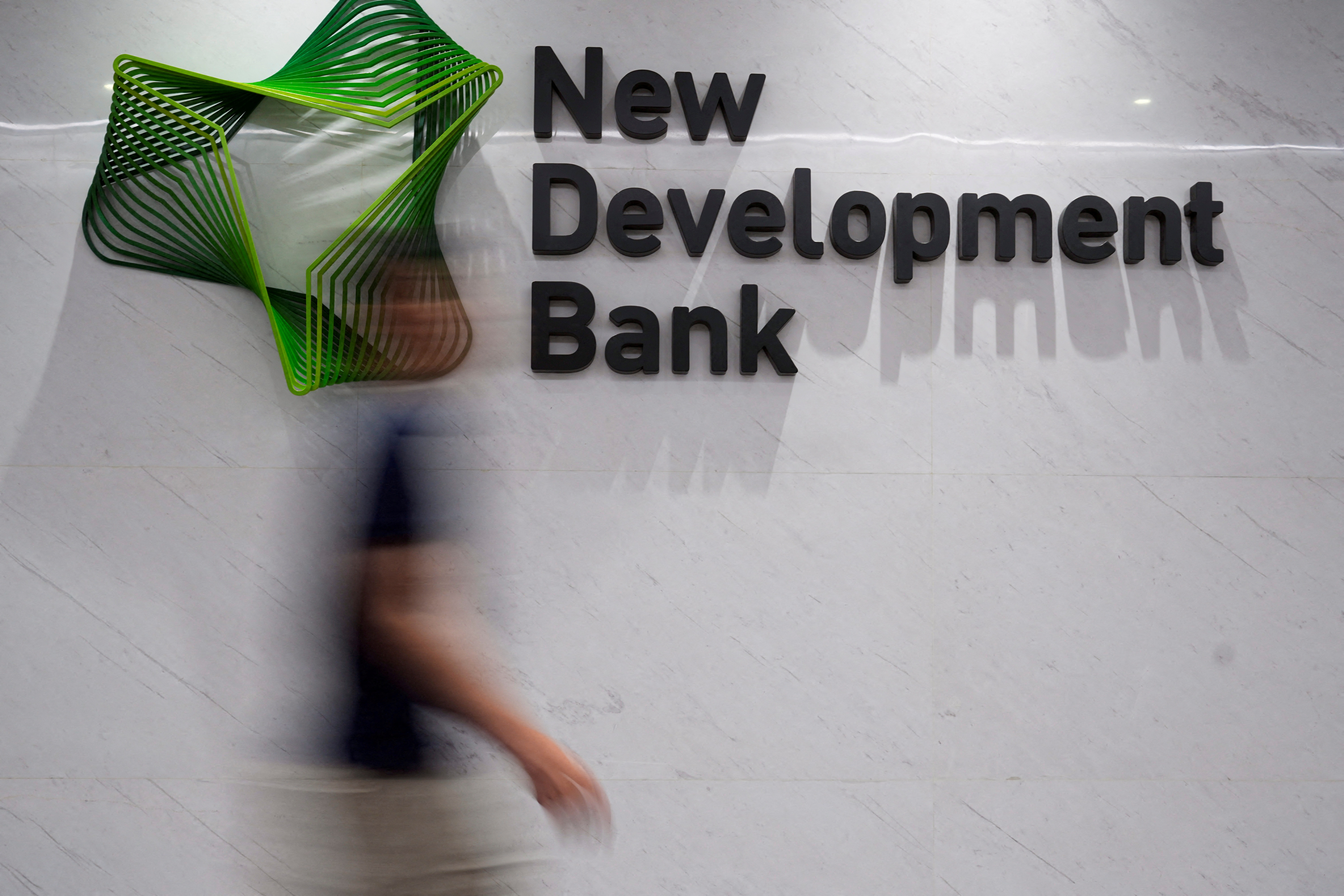[ad_1]

A view of brand of New Development Bank (NDB) at its headquarters in Shanghai, China July 10, 2023. REUTERS/Aly Song/File Photo Acquire Licensing Rights
JOHANNESBURG, Aug 21 (Reuters) – The improvement financial institution based by the so-called BRICS nations is planning to concern its first Indian rupee bond by October, its chief working officer mentioned on Monday, because the lender comes under pressure to boost and lend extra in native currencies.
The New Development Bank (NDB) issued its first rand bond in South Africa final week and will contemplate native foreign money issuance in members Brazil, Russia and United Arab Emirates, Vladimir Kazbekov informed a press briefing forward of the BRICS Summit in Johannesburg on Aug. 22-24.
Founded in 2015, the NDB is probably the most concrete achievement of the BRICS nations – Brazil, Russia, India, China and South Africa – as they bid to show the bloc right into a counterweight to the west. However, its already sluggish tempo of lending has been additional hampered by sanctions in opposition to Russia.
“We’re going to tap (the) Indian market – rupees – maybe by October in India,” Kazbekov mentioned.
“Now we start thinking seriously… to use one member country’s currency to finance projects with that currency in another member. Let’s say, a project in South Africa to be financed in CNY (Chinese yuan), not with USD (U.S. dollar),” he mentioned.
Kazbekov declined to present a goal dimension for the Indian rupee bond program, which Reuters had previously reported was within the means of being arrange.
Chief Financial Officer Leslie Maasdorp informed Reuters then that the financial institution goals to extend native foreign money lending, most of which has up to now been within the Chinese yuan, from about 22% to 30% by 2026, however that there have been limits to de-dollarisation.
The NDB can also be able to fulfil a dedication made two years in the past to supply $3 billion of financing for South Africa’s “Just Transition” from largely coal energy to renewable vitality, Kazbekov mentioned.
“The commitment is still there, but no projects. That’s why we are trying to find projects,” he mentioned.
Reporting by Rachel Savage; Editing by Hugh Lawson
Our Standards: The Thomson Reuters Trust Principles.
[adinserter block=”4″]
[ad_2]
Source link